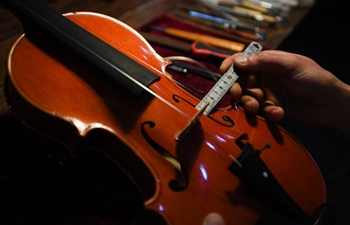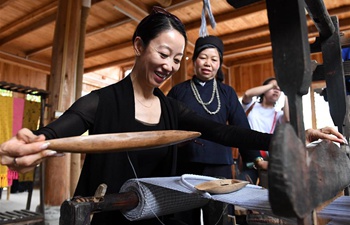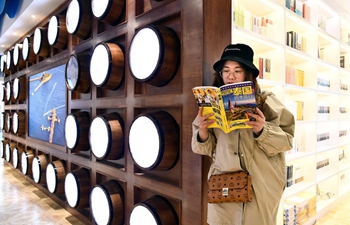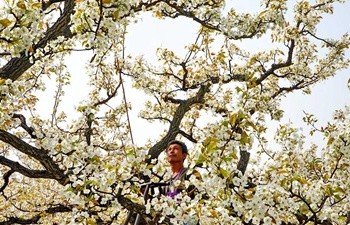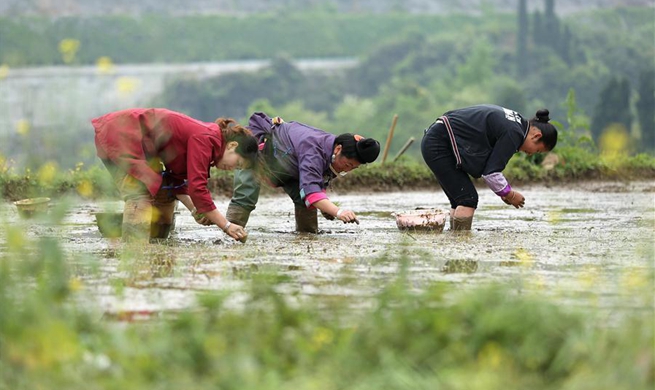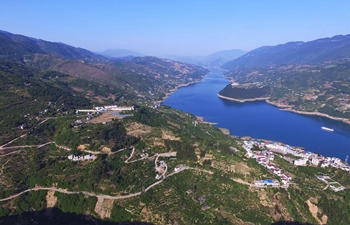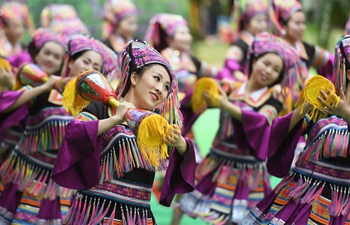BUENOS AIRES, April 20 (Xinhua) -- Argentina has opened its first self-sustainable public school in Mar Chiquita, some 380 kilometers south of the capital Buenos Aires.
It took hundreds of volunteers 45 days to build the fully sustainable building, which cuts operating costs, promotes innovation and raises environmental awareness.
The unique project was designed by Tagma, an Uruguayan non-profit that gathers ecologically-minded professionals in engineering and architecture.
"We have a building that incorporates six principles of sustainability in its construction method," one of Tagma's construction coordinators, Matias Rivero, told Xinhua.
Most importantly, "it's energetically self-sustainable and efficient -- doesn't require any type of fossil fuel for heating, or supplying water, light or food," said Rivero.
Mar Chiquita's Public School No. 12, which covers some 300 square meters, gets its energy from the sun, features two organic vegetable gardens and a smart rainwater collection system that recycles.
Some 60 percent of the construction materials are recycled and the building is designed to maintain the temperature between 18 and 25 degrees centigrade year-round, with no need for heating or cooling mechanisms.
"We think the (construction) method is the closest thing to a broad concept of sustainability, and it's very useful as a teaching tool," he added.
Tagma's goal was "to make a building that can teach kids about nature ... and speak to us of sustainability, bringing sustainability into public education," said Rivero.
The hope is that the elementary school's approximately 70 children will naturally learn about caring for the environment, recycling, the rational use of natural resources, and healthy eating, in addition to traditional subjects like reading, writing and math.
Earthship Biotecture, a company run by renowned U.S. architect Michael Reynolds, supplied the construction method, while the private sector provided the financing.
Karen Vizental, vice president of corporate communications and sustainability at Unilever Latin America and the South Cone, one of the private companies sponsoring the project, said the initiative leaves an important "legacy" for younger generations.
"Part of the community participated in learning how to build a school like this, so you end up with installed capacity in addition to a school for life. I think that is the great legacy we can leave behind, apart from educating our children on the basis of sustainability," said Vizental.
This is the group's second sustainable school building. The first was built in Jaureguiberry of Uruguay in 2016.




